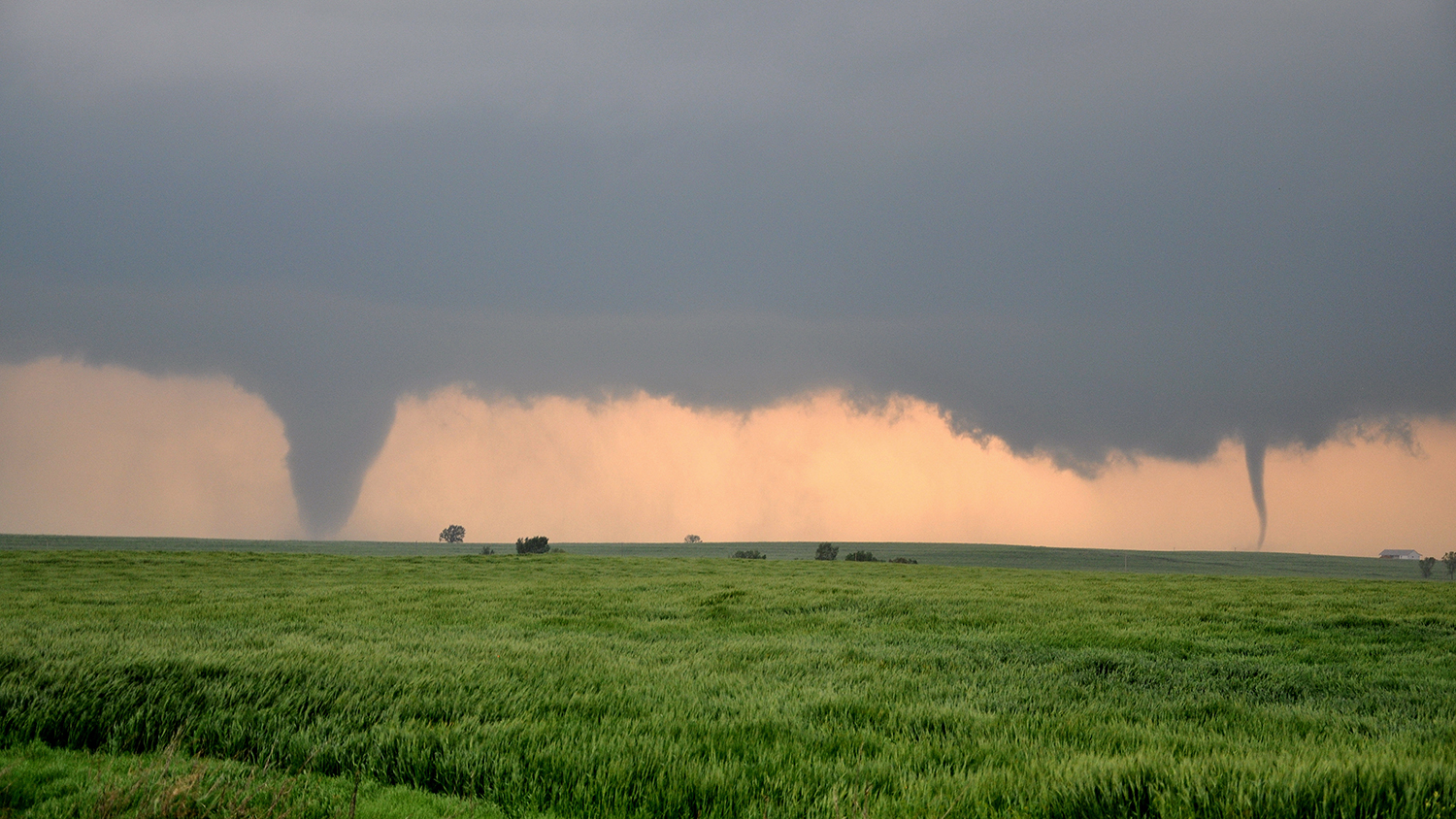MEA 140 Makes Waves Online

DELTA staff members on this project include Ben Huckaby, Caitlin McKeown, Laurie Gyalog, Todd Buker, Mariana Gallegos, Andrew Wiedner and Jennafer Pettit.
An introductory course with no owner and an interim department head with a vision — this is the scenario Professor Jay Levine brought to DELTA when he applied for an Online and Distance Education Grant in 2018.
Levine is the interim department head of the Department of Marine, Earth, and Atmospheric Sciences (MEAS) in the College of Sciences and is working with DELTA staff members to breathe new life into MEA 140.
The course was last taught in 2016 as an in-person lecture-based course, called Natural Hazards, but it never had a clear owner or faculty member responsible for keeping it up to date each semester, which caused some consistency issues.
Levine saw the potential for the course and applied for a DELTA Grant to help bring the course back, but in a new way, this time as an online course.
Even though Levine has never taught online before, he’s ready to give it a go and add this new skill to his tool box.
“A DELTA Grant is an opportunity to grow and expand your skillset as an instructor.”
He had a few goals for the newly revamped course including attracting new students to MEAS.
“I thought of it as a way to get students excited about what we do in the department. What can be more relevant than thinking about the sustainability of the planet and how these hazards and natural events and sometimes human-induced events can impact our society and the planet,” said Levine.
Levine is particularly interested in attracting students who are interested in math who may be looking for a way to apply their skills. He also wants to expose students to the careers available in the field.
Gathering the Content
MEA 140 is an introductory course for undergraduate students to get a broad understanding of natural disasters and processes and how each event impacts society. It covers energy, seismic activity, tornadoes, hurricanes, floods, droughts and fire, and how humans affect these events.
The unique aspect of this course is that Levine has an appointment in the College of Veterinary Medicine but is currently serving in his role as interim department head.
Levine put the DELTA team in contact with numerous subject matter experts (SMEs) to collect content for the creation and design of MEA 140.
With the many moving parts and people involved, DELTA created and dispersed information packets to the SMEs to receive content for the course.
Instructional Designer Caitlin McKeown said the main premise of the packet was to find out the most important pieces of information for each subject by asking, “If you had first-year students for one week, what would you teach them?”
The information collected from each of the SMEs is what is driving the creation of modules for the course.
Key Deliverables
MEA 140 will be housed in Moodle with 14 modules on a specific natural event or idea.
As the students make their way through the modules, there’s a header graphic that will unlock headlines and news stories based on the student’s progression through the module. In addition, a 3D globe will be displayed and will rotate to pinpoint where the particular natural events occur.
For each module, there will be an introduction page with blurbs written by the SMEs. The intro page will also include a “reveal the math” section to tie into the goal of attracting math-inclined students. While students aren’t actually solving equations, they will read a discussion about how the professionals in the field are using math.
There will also be a section to highlight careers in the field. MEAS has very notable alumni to showcase and inspire students to follow in their footsteps.
From there, students visit a page of resources that include videos, website links and other relevant resources.
The next piece of the module is an interactive simulation. For the tornado module, the simulation allows students to adjust factors to see the potential impact of the tornado. Students can select the tornado strength and the population density of the area of its impact to see estimated information like distance covered, casualties, injuries and property damage.
Next, students will watch videos that highlight each of the SMEs and includes how they started in their respective fields, what they do, and how it all relates to other subjects.
“The videos are being developed for the course, but they can also exist on their own,” said Ben Huckaby. The videos include NC State branding and can be used as marketing pieces for the course.
The last piece of the module is a case study. Developed with research librarians at NC State Libraries, the case study includes real examples of events in recent history. The librarians worked to curate news articles and other information for the students to explore how the events impacted real people.
Each of these pieces comprises the individual module — with 14 modules in total covering a variety of natural events.
The DELTA Impact
When asked about his preparation for teaching online for the first time, Levine said, “I wouldn’t have been able to do it without DELTA’s help. The involvement of the DELTA staff in the design of the class has been essential for ensuring the quality of the experience for students.”
The DELTA team has helped Levine prepare by sharing personal experiences of teaching and learning online. Both McKeown and Project Coordinator Laurie Gyalog have been able to share what it’s like to be an online student. These experiences help Levine understand the many different ways he can structure assessments and projects in an online environment.
“The DELTA team is just terrifically skilled, enthusiastic and passionate about what they do. It’s really been great fun,” said Levine.
Apply for an Online and Distance Education Grant
With a team of DELTA staff members with diverse backgrounds, an Online and Distance Education Grant can help you bring your course online or provide instructional materials to expand or revise an already established course.
The proposal submission system is open now and closes May 17 at 5 p.m.
Visit go.ncsu.edu/deltagrants for more information. View our DELTA Grants FAQ page for information about grant eligibility, the review process and general inquiries.
Email deltagrants@ncsu.edu with specific questions.


